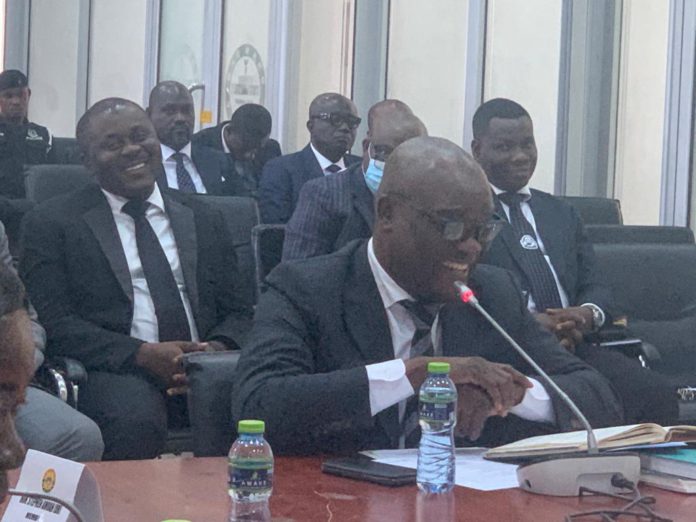A judge nominated to the Supreme Court has admitted he failed to comply with the Asset Declaration Law when he took office as a High Court Judge in 2020.
Justice Ernest Yao Gaewu told the Appointments Committee of Parliament during his vetting on Wednesday, October 19, that he filled the forms as was required but simply forgot to submit them.
“It just got lost on me. I am sorry about that; I’ve apologised to even the Chief Justice,” he said.
The Constitution requires the declaration to be done before the public officer takes office.
However, Section 1 (4)(c) of the Public Office Holders (Declaration of Assets and Disqualification) Act directs public office holders to meet this requirement “not later than six months after taking office, at the end of every four years and not later than six months at the end of his or her term.”
Busy schedules, not negligence
Justice Gaewu explained that the situation occurred due to his busy schedule as a judge.
“The work of a judge is such that when you rise from your house straight to the courtroom, your full attention is on court and attending to your matters. You get home, you have to write your rulings and come back the following [day].”
Meanwhile, he stated that it will be quite unfair for anyone to say he failed to declare his assets because he was negligent.
“Mr Chairman, negligence is too strong; it got lost on me,” he rejoined.
Asset Declaration Law
The law requires that public officeholders submit to the Auditor-General written declarations of all property or assets owned by, or liabilities owed by them, whether directly or indirectly.
They include the President, Vice President, the Speaker of Parliament, Deputy Speakers of Parliament, Members of Parliament, Ministers and Deputy Ministers of State, ambassadors, the Chief Justice, Judges of Superior Court, Judges of Inferior courts and managers of public institutions in which the state has interest.
They are to declare their assets relating to: (a) lands, houses and buildings; (b) farms; (c) concessions; (d) trust or family property in respect of which the officer has a beneficial interest; (e) vehicles, plant and machinery, fishing boats, trawlers, and generating plants; (f) business interests; (g) securities and bank balances; (h) bonds and treasury bills; (i) jewellery of the value of ¢5 million [now ¢500] or above; objects of art of the value of ¢5 million or above; (j) life and other insurance policies; (k) such other properties as are specified on the declaration form.
Affiliation to NPP
During his vetting, it emerged the Supreme Court judge nominee had a political affiliation with the New Patriotic Party (NPP).
A question was posed by Member of Parliament for Bodi, Sampson Ahi, on how he would adjudicate a matter between the NPP and NDC when appointed.
He also explained that he will always apply the law firmly irrespective of the partisan colours of cases that come before him.
Although he was an NPP member, he now belongs to the bench.
Death penalty
Touching on the death penalty, the judge said it ought to be scrapped, especially when some convicted persons go to prison and are later cleared of any wrongdoing or find themselves in a case of mistaken identity.
His position was supported by a colleague nominee, Justice Samuel Kwame Adibu Asiedu, who also called for its removal.
Although existing in law, no president – since the inception of the Fourth Republic – has signed the death warrant of persons sentenced to death.
The MP for Madina, Francis-Xavier Sosu, and some MPs are sponsoring a private members bill to remove the death penalty.
The Judge told the Committee, he would always uphold the laws of the land and will not be influenced by political colours.
Vetting
The Committee has wrapped up its work on the four nominees and is expected to present its report next week when Parliament reconvenes after a three-month break.
The nominees are Justice Barbara Ackah-Yensu, Justice George Kingsley Koomson, Justice Samuel Kwame Adibu Asiedu and Justice Ernest Yao Gaewu.

